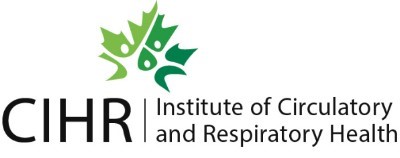
RRC Member Team Awarded CIHR Grant
Congratulations to RRC member team for recently being awarded a Project Grant!
Congratulations to RRC member team members and Co-Pis: Drs. Ianowski, AbuArish and Campanucci (APP), Dr. Montgomery DVM (WCVM, Large Animal Clinic), and Drs. Tam and Tyan (Medicine) on their recent award of a CIHR Project Grant! Their project, “Cellular bases of cystic fibrosis lung disease: epithelial ionocytes transport bicarbonate and control airway surface liquid pH; while club and goblet cells control hydration and volume” has received funding for 5 years through the Project Grant funding stream.
Project Abstract
Cystic fibrosis (CF) is an autosomal recessive disease caused by mutations in the gene encoding for the Cystic Fibrosis Transmembrane conductance Regulator (CFTR) anion channel. Organs that normally express CFTR malfunction in CF, including the pancreas and intestine. However, most of the mortality and morbidity results from lung disease. People with CF are born with apparently normal lungs, but they acquire chronic bacterial infections and inflammation of the airways in the first few years of life. Despite considerable research, the events leading from CFTR gene mutation to lung disease are not fully understood. Moreover, there is controversy regarding which airway cell types are responsible for the development of CF lung disease. This lack of detailed understanding of the cellular causes of CF lung disease complicates the development of precision medicine therapies, such as gene therapy, that require precise identification of cellular targets. In this grant we propose to study the contribution of the various cell type populations expressed in the airway to CF lung disease pathobiology. In particular, we will study ionocytes, a recently discovered cell type, club cells and goblet cells to determine their contribution to CFTR-dependent ion transport and CF lung disease. We will use state-of-the-art techniques to measure the function of single epithelial cells in airway tissues as well as in epithelial cell preparations. We will characterize the role of each cell type and test whether they are the cause for the abnormalities observed in CF lungs in animal models of disease and human volunteers. Our results will reveal the cellular bases of CF airway disease and identify the specific cell population and the region of the lung that must be targeted for next generation genetic-based therapies for cystic fibrosis.

